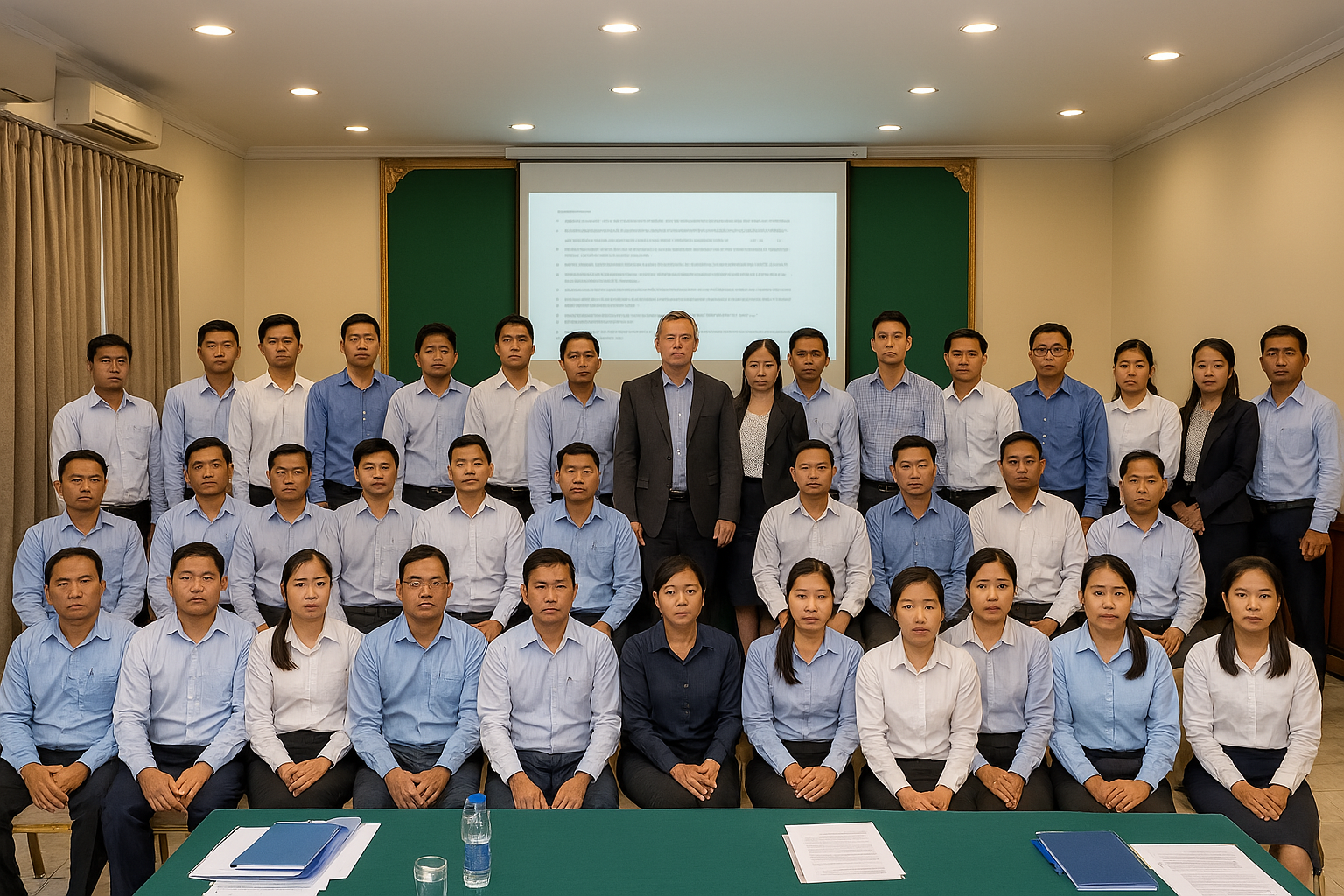Capacity Building for OSH Focal Persons to Support Drafting of OSH Law in Cambodia
Central to the success of any policy reform, particularly one as vital as OSH law, is the active involvement of government bodies, social partners, and other stakeholders throughout the entire process.

A significant initiative aimed at strengthening Occupational Safety and Health (OSH) legislation in Cambodia has recently concluded with the participation of 34 OSH focal persons from 28 employers and workers’ organizations. The comprehensive training sessions, held on February 27 and March 28, 2025, were designed to equip these participants with a deeper understanding of OSH laws and regulations, with a particular focus on Cambodia's ongoing efforts to reform its OSH legislation.
The Royal Government of Cambodia is leading an important reform process to create a prevention-based OSH law. The new law is envisioned to address critical aspects of workplace health and safety, ensuring a safer environment for workers across the country. In response to the Cambodian Government's request for technical assistance, the International Labour Organization (ILO), through its Japan-funded project “Promoting a Safe and Healthy Working Environment for Thailand and Cambodia,” has been providing invaluable support to this legislative process.
Central to the success of any policy reform, particularly one as vital as OSH law, is the active involvement of government bodies, social partners, and other stakeholders throughout the entire process. Recognizing this, the ILO organized a series of capacity-building events to facilitate the engagement of various social partners in the law’s drafting. These sessions served as a platform for employers, workers, and government representatives to engage in meaningful discussions and provide feedback on the proposed OSH law.
The training provided the participants with critical insights into the components of a comprehensive OSH law, guided by the International Labour Standards, specifically Conventions No. 155 (Occupational Safety and Health Convention) and No. 187 (Promotion of OSH). These conventions lay out the core principles for ensuring safe and healthy workplaces, emphasizing the roles and responsibilities of both employers and employees. Through an annotated outline of the OSH law, participants were able to identify gaps and weaknesses in the current draft, providing essential feedback through small group discussions and plenary sessions.
Mr. Mam Sotharin, an employer participant, noted that the training equipped him with basic knowledge on OSH and its alignment with the ILO Conventions. “We now understand the rights and responsibilities of both employers and workers under the proposed legislation,” he said, emphasizing the importance of such training in the drafting process.
The participants were actively engaged in the training sessions, with many reporting that the program had been invaluable in enhancing their understanding of OSH law. It also gave them a chance to raise concerns, share their perspectives, and contribute proposals to the draft law, making them feel more involved in the decision-making process.
Mr. Ly Vichet, the President of the Cambodia Confederation of Workers, explained that the training allowed participants to prioritize key elements of the national OSH system that need to be addressed in the legislative framework. This was done through a checklist exercise that highlighted legislative priorities, followed by in-depth discussions. This exercise, according to Mr. Vichet, will play a critical role in shaping the future of OSH regulations in Cambodia.
The next crucial step in the process will be the tripartite consultation on the draft OSH law, which will bring together representatives from government bodies, employers, and workers’ organizations to further refine and finalize the legislation. This collaborative process is key to ensuring that the law is balanced, practical, and effective in improving the working conditions for all workers in Cambodia.
The Japan-funded project “Promoting a Safe and Healthy Working Environment for Thailand and Cambodia” is part of the ILO’s global Safety + Health for All flagship programme. This programme aims to promote the fundamental right to a safe and healthy working environment, mobilizing resources to implement projects that foster coherent development cooperation at national, regional, and global levels. The Cambodian OSH legislation reform process is a crucial component of this broader initiative, which aims to enhance worker safety across the Asia-Pacific region.
As Cambodia moves forward in its OSH legislative reform, the continued involvement of social partners and stakeholders will be vital in ensuring the law is both effective and inclusive. The training sessions have been an essential step in this collaborative process, laying the groundwork for a safer, healthier working environment for all.










